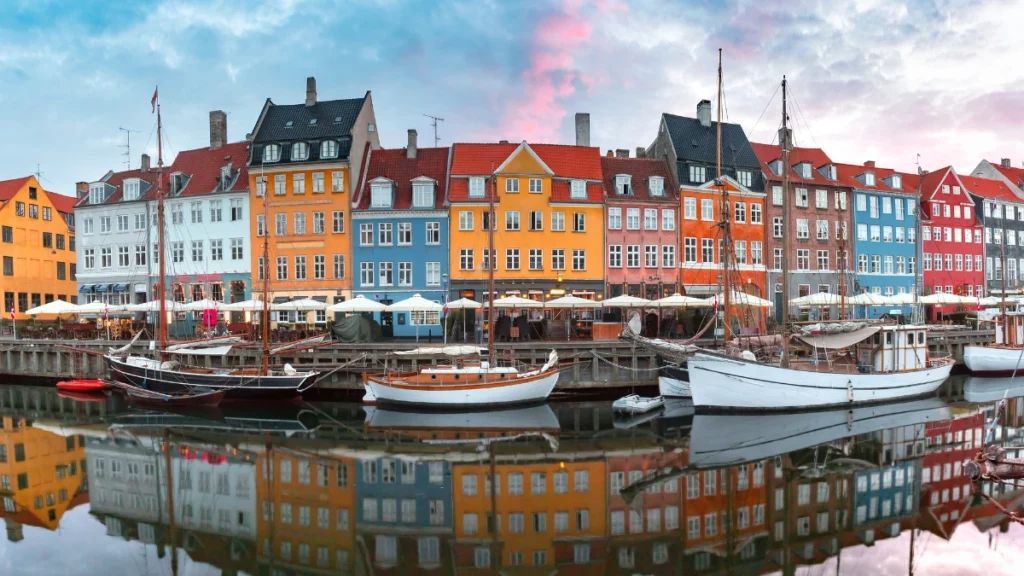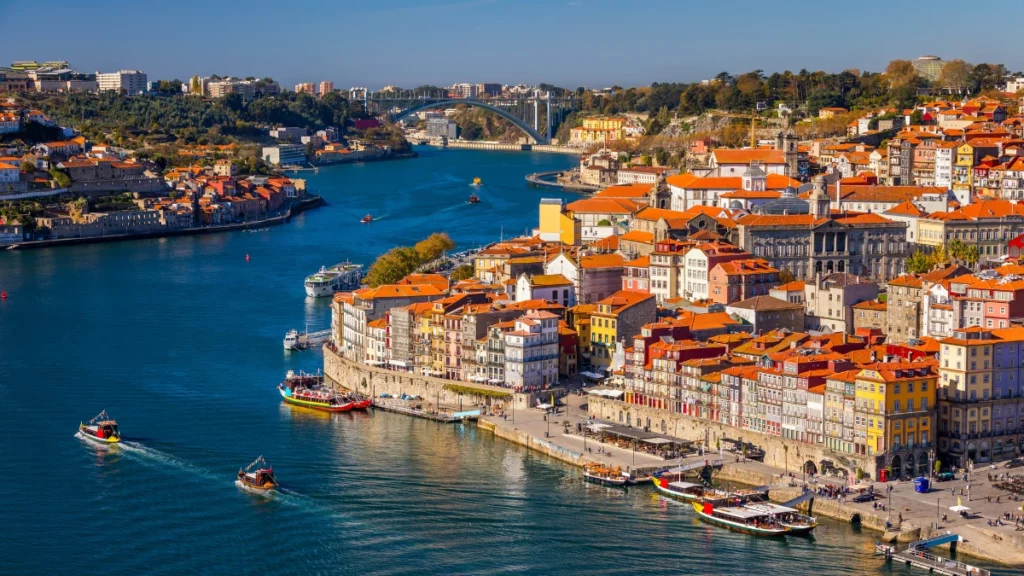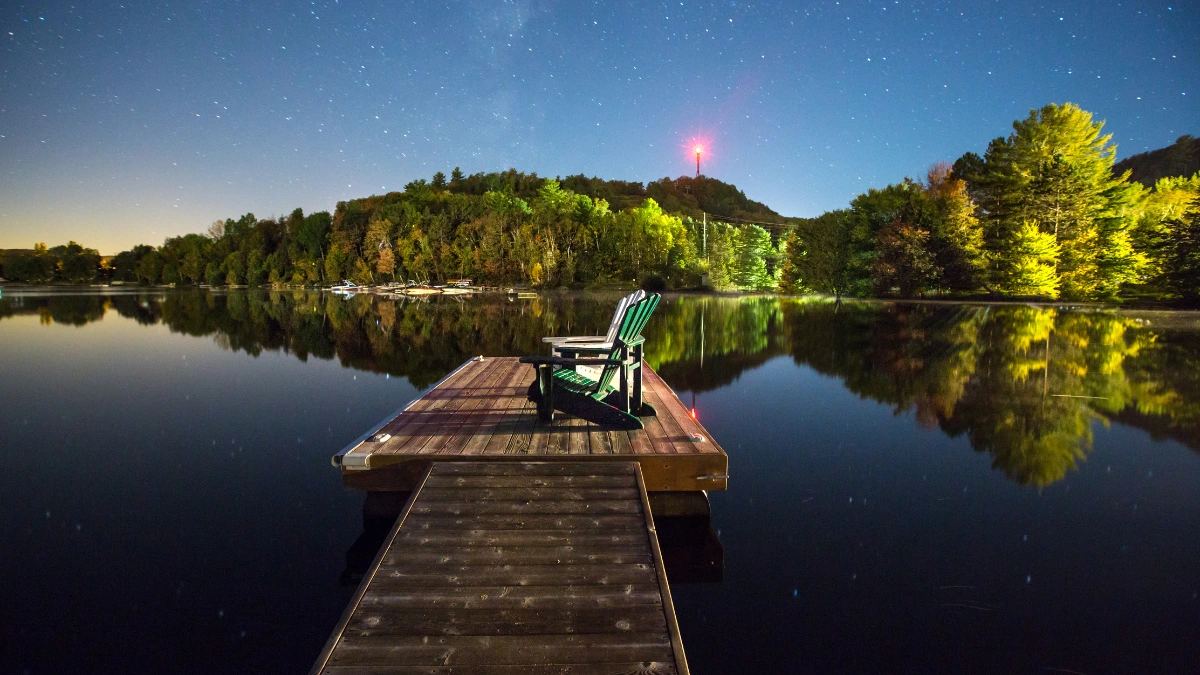According to the 2023 GPI (the Institute for Economics and Peace’s Global Peace Index for 2023), the world became less peaceful this past year. Peacefulness improved in 84 countries but declined in 79 countries. Thankfully, there are still many countries that will leave visitors more relaxed, and you’re almost guaranteed to have a tranquil holiday even in these times of rising global conflict.
Surprisingly, the most tranquil countries in the world don’t have sandy beaches, rum punch, and palm trees in common. You’re more likely to come across majestic mountains, serene waterscapes, and—often—snow and ice. That begs the question: Do people who live in vast, marvelously green rolling landscapes have more capacity for calm than their brothers in harsher climates?
2023’s Top 10 Tranquil Countries
The most tranquil countries share high scores in social values like the equitable distribution of resources, access to information, and respect for human rights. All have very low crime rates and high living standards, and they invest in broad-based social welfare programs.
Iceland
Best known for active volcanoes, ancient glaciers, and idyllic ice-cream-colored settlements set along the icy seaside, this region also offers an unforgettable Northern Lights tour, allowing visitors to witness one of nature’s most spectacular displays.
The landscapes are spectacular, if stark, and the people are tranquility personified. They’re not known for their small talk, which may shock more garrulous southern travelers seeking the benefits of Icelandic geothermal spas amidst stunning vistas.
Denmark
Best known for “Hygge,” Danish pastries, and regularly winning the title of the happiest country in the world.

The concept of Hygge conveys a state of contentment, snugness, comfort, and tranquility. It’s a fundamental aspect of Danish culture. Denmark offers remarkable landscapes and countryside attractions, but the cities are steeped in a quiet sophistication with a burgeoning culture of arts, theatre, and crafts culture. Copenhagen is the home of Noma, regarded as one of the finest restaurants in the world. It is also the city where Marcus journeys into the art and science of crafting fine desserts in the second series of The Bear.
Ireland
Best known for pubs, St Patrick’s Day, leprechauns, and Clover.
Ireland, aka the Emerald Isle, is a picture-perfect example of rolling green hills where a few hardy people live in some of the most remote locations in the world. The towns are quiet, but the cities are far more lively. The Irish are known for their wit and appreciation for tradition. And they have a much more idyllic coastline than they know what to do with!
New Zealand
Best known for the portrayal of bucolic country life in the Lord of the Rings trilogy and their national respect for egalitarianism, which led them to reject Peter Thiel’s multimillion-dollar investment in his ultimate “End of the World” home.
The locals are friendly, and the vineyards are corking. It’s the home of several spectacular thermal geysers, volcanoes alongside glaciers, and several unspoiled national parks, which are a source of great national pride. New Zealand even offers several unique wildlife species—if you’re lucky, you may spot a Kiwi.
Austria
Best known for classical music by the great masters like Mozart and Beethoven and their dedication to cleanliness and order.
Austria has a splendid combination of history, culture, and natural beauty, punctuated by historic cities like Vienna and Salzburg that have been centers of advancement in the arts, science, and fashion for centuries.
Singapore
Best known for being arguably the most harmonious blend of Asian and European cultures.
One of your first impressions of the “Gateway to Asia” is the contrast between its lush, meticulously manicured green spaces and the spectacular skyscrapers. The city sparkles, the locals are courteous and friendly, the shopping is fantastic, and the culinary scene is divine.
Portugal
Best known for sundrenched beaches, fantastic Mediterranean food, historic charm, and the relaxed pace.
Portugal bulges with historic sites that reflect the deep tradition of international trade by some of the earliest civilizations. Visit the vineyards and take some time to explore the rich folklore. You’ll come to appreciate the sense of community that is apparent in every town.

Slovenia
Best known for the Lipizzaner horse, intricate handmade bobbin lace, and ancient beekeeping tradition.
There are ancient monuments, local crafts, produce, and art markets galore—Slovenia is an underexplored and undervalued melting pot of Slavic, Germanic, and Romance cultures.
Japan
Best known for its cherry tree blossoms, strong work ethic, the Japanese tea ceremony, and legendary Japanese politeness.
You’ll be constantly delighted by how harmoniously the stark contrasts between cutting-edge innovations and ancient traditions somehow balance and blend. Modern Japanese life emphasizes an almost surprising appreciation of nature and the outdoors.
Switzerland
Best known for the Alps, Swiss cheese, fine chocolate, Swiss army knives, yodeling, incredibly accurate watches, and hush-hush banking.
Switzerland has produced more than its share of world-famous inventions for such a tiny country. It’s reflected in the country’s wide range of traditional customs. And you can’t avoid the Alps – Switzerland has a lively skiing and mountaineering culture.
Tranquil Does Not Mean “Without any Dangers”
Although these ten countries have far lower crime rates than others, traveling in a foreign country always carries some degree of risk. Take the usual precautions for traveling safely, including these golden oldies:
- Use a VPN for traveling to connect and stay in touch with friends and family. Don’t connect to free Wi-Fi hotspots, where cybercriminals are lurking, without the protection of an encrypted connection.
- Avoid wearing flashy jewelry or clothes that make you stand and make you a target for theft or other crimes. Instead, try to blend in as much as possible by avoiding anything too flashy.
- Save emergency contact details where you can easily access them during a crisis. Keep digital copies of your travel documents, such as your passport and visa, in case you lose the originals.
- Be aware of popular scams. These can range from tearful kids begging for your attention while older kids ransack your shoulder bag to RFID scanners that thieves use to steal your credit card information.
- Always stay aware of your surroundings and trust your instincts.

